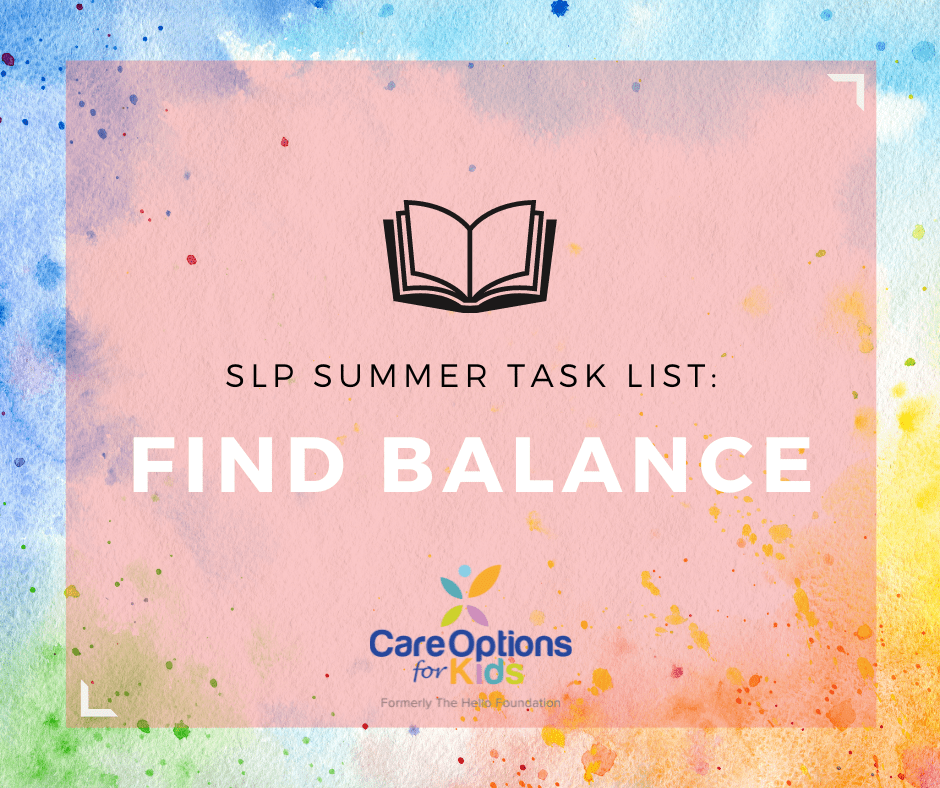Here in Oregon and Washington, schools have let out and summer is in full swing. The weather has turned from our early June pattern of cool and rainy to clear skies and hot, hot sunshine. While kids race off to camps, practice, playdates, summer jobs, or whatever it might be, summertime is the best time to re-center, to find the balance needed to be able to start the cycle again in the fall. Although many activities feed that process – vacations, early morning runs, pool parties, time with family, gardening – reading material is an explicit and purposeful choice that many make.
What’s in your stack to start the summer? An oldie but a goodie is The Whole-brain Child, by Daniel Siegel and Tina Payne Bryson, with the accompanying workbook. A lot can be inspired from this book, from ideas to support your own parenting, to ways to support the students on our caseloads. And don’t forget to check out the handy-dandy Ages & Stages table at the back of the book that helps to make sense of how to apply strategies at different developmental stages. PURE Gold.
When it comes to fiction, check out this list of top summer reads by TIME. For parents of kids under 18, head to your local library and sign up your child for their fun reading programs! One of our clinicians gave a wonderful tip for connecting with young adult children- find a young adult fiction book and read it together over the summer to provide a means for talking about tough issues and different perspectives. For example, the book Challenger Deep follows a high school boy through his descent into schizophrenic paranoia and delusions, and can open the door to talking about mental health.
Lastly, summer provides the opportunity for more leisurely perusal at local bookshops. Do you ever find yourself in the children’s section, fantasizing about the therapy sessions you could lead with some new additions to your library? Here are some helpful criteria for narrowing the ocean of children’s books:
- Find simple, short books (that can fit in a 20-30 minute session!), but still have slightly more mature themes.
- My most used books in the therapy room are those that offer clear opportunities to talk – you almost can’t turn the page without explaining something or pointing something out! It could be the bird hiding on each page, or the little thing that’s wrong with each picture.
- Lastly, snatch up books that have an obvious connection to one or several speech sounds (think Slip, Slide, Skate or “There are Rocks in my Socks,” said the Ox to the Fox for S-blends).
Summer reading can be an invaluable tool for restoring brain balance. We would love to hear what’s on your reading list this summer!






